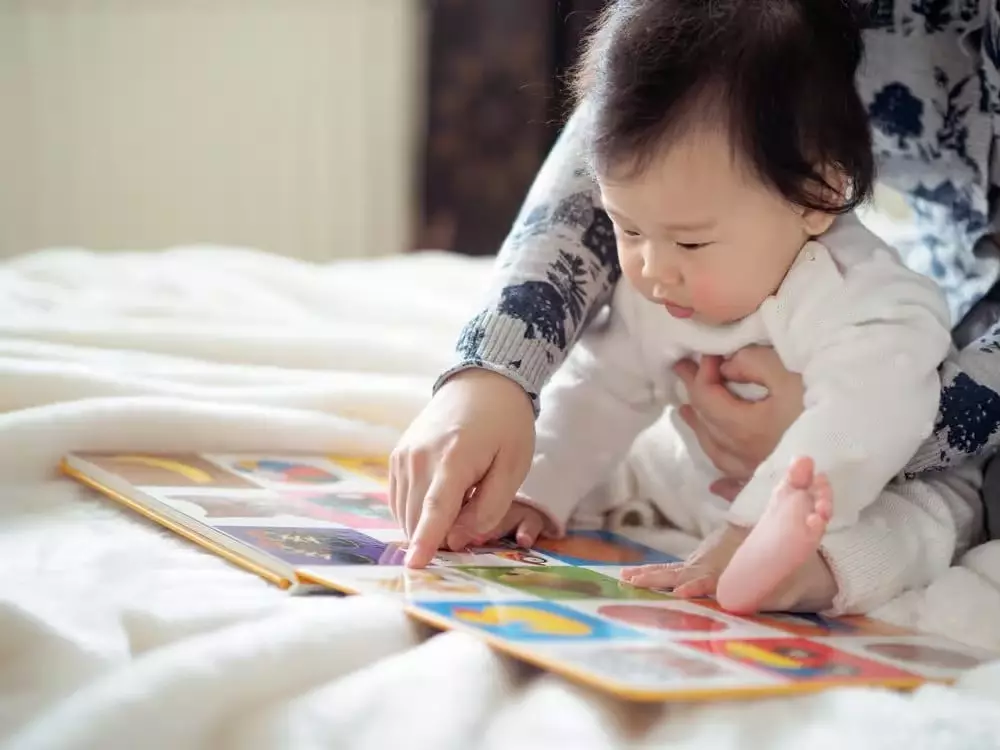Introducing books to babies might seem unnecessary to some parents, but new research reveals that the decision to read to infants has profound benefits that set the stage for lifelong learning. In my own experience as a mother of a two-year-old, I often find myself returning to the same stories, such as “Brown Bear, Brown Bear,” more times than I can count. It’s a rock concert of repetition, but every familiar page draws my child deeper into the world of imagination. A recent nationwide survey conducted by Scholastic indicates that I am not alone in this habit; an increasing number of parents are embracing this practice as part of their daily routines.
Early exposure to reading is fortified by valuable recommendations from esteemed organizations like the American Academy of Pediatrics. These professionals encourage parents to read aloud starting from birth. Historically, this advice has gained traction, with statistics showing that three-quarters of parents with children under five have begun reading to their little ones before their first birthday, a significant uptick from previous years. These findings reflect a collective awakening to the critical role that storytime plays not only in enhancing language skills but in strengthening the emotional bonds between parents and their children.
The Benefits of Reading Aloud
You might be surprised to learn that reading to your baby can ignite optimal brain development at such a young age. From the moment infants can visually focus, they can begin to engage with books. Experts assert that the timing of reading is crucial; it is during this formative stage that children develop essential language, literacy, and social-emotional skills that will benefit them throughout their entire lives. It’s the perfect blend of nurturing and education, creating unbreakable connections that enhance bonding.
Additionally, this learning journey does not exist in a vacuum. The results of the Scholastic survey are incredibly revelatory. More than two-thirds of participating parents reported reading multiple books in a single sitting, which speaks volumes about the inherent curiosity and desire children have to explore stories. My own child embodies this spirit: once he learned to signal for “more,” our reading sessions evolved into a delightful whirlwind of pages flipping and tales unfolding.
Children’s choices in reading material start to emerge remarkably early too. It’s a delightful moment of responsibility when your toddler insists on selecting their book. A large majority of kids between the ages of two and five are eager to pick out their own stories, a trend that brings both joy and occasional frustration to parents. I’ve often found myself needing to hide my son’s favorite titles just to regain some variety in our reading schedule.
Evidence Supporting Early Reading
The correlation between reading with a mother during infancy and developing essential skills has garnered attention from researchers. A comprehensive study spanning four years among 250 mother-baby pairs found that early reading significantly predicts advanced vocabulary skills later on. Such findings are bolstered by the assertion that frequent, engaging storytime sessions during toddler years can predict early literacy milestones like signature writing by age four.
When researcher Carolyn Cates presented these findings, the significance of reading to your baby was emphasized: the lessons learned during those intimate reading moments resonate into the future. The narrative threads woven during those early times serve as the foundation for everything that comes after, especially as children embark on their academic journeys. The message is clear: parents have an influential role, and prioritizing reading can pave the way for success in school and beyond.
Utilizing Tools for Development
As we bear witness to this remarkable trend of increasing parental engagement in reading, it feels promising for the next generation. Strategies like embedding reading into daily routines, celebrating milestones, and tracking developmental stages can seamlessly integrate into parent-child relationships. Technology has paved the way for innovative solutions like the ParentPal app, designed specifically for progressive parenting.
ParentPal serves as an essential all-in-one parenting resource that offers not just guidance but also the tools to aid developmental tracking. From crucial milestones to sleep and wellness trackers, it encompasses a spectrum of services aimed at making parenting smoother. Developed by leaders in early childhood education, including the creators of Baby Einstein, ParentPal pulls from research-backed expertise to make valuable insights accessible even in sleepless midnight hours.
This confluence of encouragement, data, and resources indicates a future where children will engage with literature more than ever before. With the current wave of heightened awareness surrounding early reading, we are undoubtedly fostering a generation of imaginative minds ready to tackle their academic futures with confidence and creativity.

